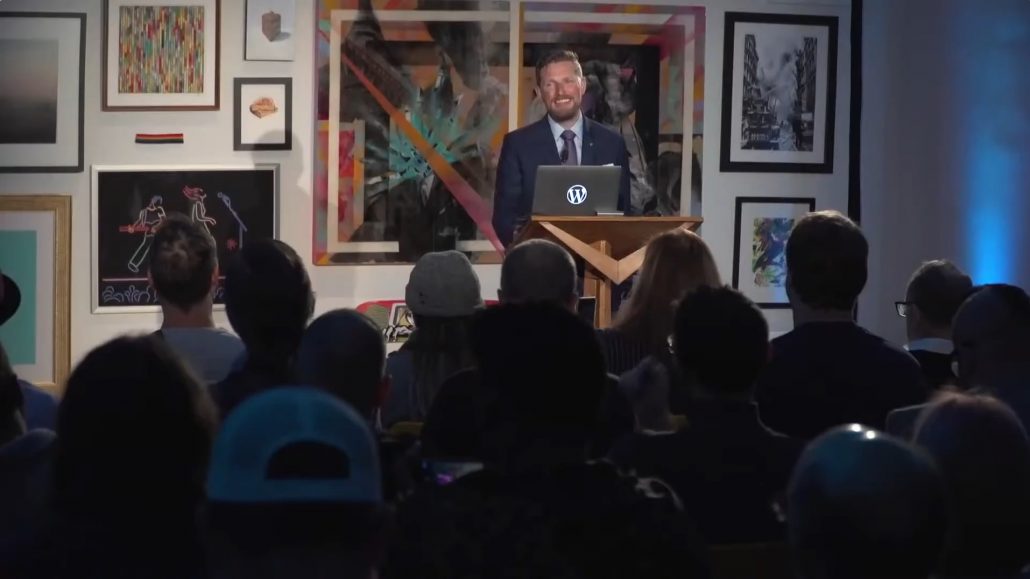The State of the Word 2021 was livestreamed from New York City on December 15. The annual keynote address was traditionally delivered by WordPress co-founder, Matt Mullenweg. Every year, this event allows us to reflect on the project’s progress and the future of open source. In this part of his keynote Matt talks about the decentralized Web3 and the NFT space. He doesn’t get too excited about it and mainly focusses on two essential ideas, i.e. decentralization and individual ownership.
Transcript
And not only are we enabling folks to express themselves and ideally uniquely on the web, unlike the cookie cutter that all the social sites try to put you into the cookie cutter looks. We’re doing it a way, which is standards based, interoperable, based on open source, which increases the amount of freedom on the web, which is very key certainly to me and the most important thing that I work on. As we’re renewing our commitment to the open web as a whole. It’s also been kind of an exciting time. Just be following technology news because a lot of people have been talking about Web3 and the decentralized web.
I’m not going to dig super deep into defining Web3m, because I don’t think anyone really knows what it means. But it is a buzzword that’s now being talked about on NPR or Wall Street Journal is being talked about in the context of global standards. And to me, what Web3 embodies is two essential ideas: decentralization and individual ownership. And for me, those are both things that WordPress is both well poised to be already doing and to continue doing for some time to come. So talk about decentralization and ownership.
WordPress in specific but open source in general, you can participate in it from anywhere. There’s 30 of us here, but the WordPress community, as we saw, is thousands and thousands of people. 15’900 translators. You can host the site anywhere on any infrastructure that you like. You can create your own forks of WordPress. Any person here could create PenguinPress or whatever you want to call it. Take the code and take it on new time. And you’re really only limited by your time and creativity, which is also an aspect of at least my favorite Web3 projects.
The other key is individual ownership. So in WordPress, as with some of the best Web3 products, you own your own contents, the code everything to run it without any payment to WordPress, you can move your content from one site to another easily. In fact, WordPress› export format has become the de facto standard for all their CMS. So even like a Squarespace and kudos to Squarespace for supporting that. When you export from Squarespace, they actually export in the WXR format, which is basically just something we did like 15 years ago, which is take RSS2 and add on a few extra XML fields to create a standards based WordPress export format.
And you have the four freedoms of open source and the GPL, which allow for ownership for every individual, including every person in this room or every person watching this owns WordPress just as much as myself or Mike Little do and individuality of expression. Keep this in mind and I would say apply the filters of everything in Web3, the NFT space, etc. There’s been an incredible amount of innovation. I think this has also attracted some hucksters and some folks kind of hustling things that aren’t truly open. So you all are very familiar with WordPress. So for every project which is asking for your money, dollars or for you to pay the cost of a house for a picture of an ape, you should ask:
Does it apply the same freedoms which WordPress itself does and how closely does it hew to and apply to increasing your individual agency and freedom in the world?
Credits
- State of the Word 2021 video live stream recording
